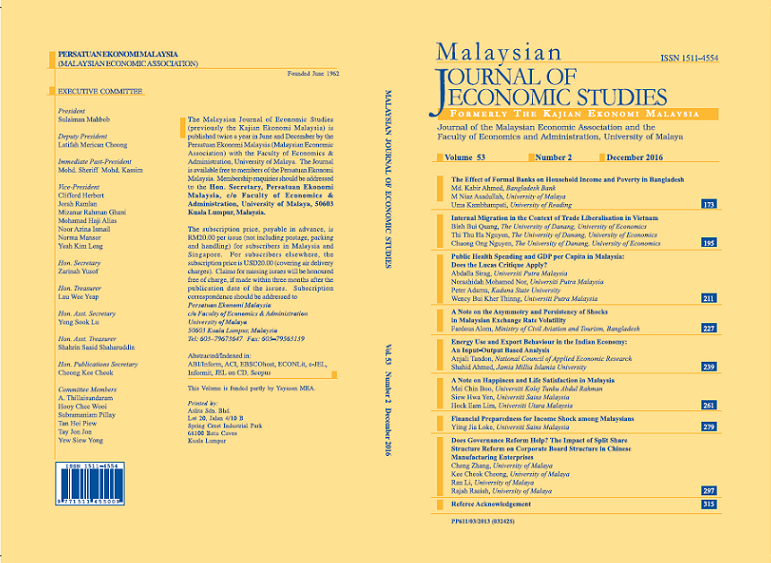Financial Preparedness for Income Shock among Malaysians
Keywords:
Emergency savings, financial literacy, personal financeAbstract
Income disruptions can have devastating effects on a household’s welfare particularly when households are financially unprepared. Furthermore, unlike unexpected events such as death or illnesses, there is no insurance that provides for a family in the event of a job loss or pay cuts. This paper empirically identifies the socio-demographic factors, financial attitude and financial knowledge that can explain the varying differences in preparedness of Malaysians for income shock. The study employs the data from the OECD (International Network in Financial Education) Pilot Study on Measuring Financial Literacy in 2010. The majority of respondents (79%) failed to meet the minimum guideline of having emergency funds equivalent to at least three months of living expenses if they lose their main source of income. Based on ordered probit analysis, education, reliable income and financial knowledge were found to contribute positively to individuals’ financial preparedness for income shock. However, having prudent financial attitude did not necessarily contribute to better financial preparedness for income shock. Lastly, savings by investment were found to help individuals to be more financially prepared for income shock compared to individuals who save conservatively through traditional savings channels only.

